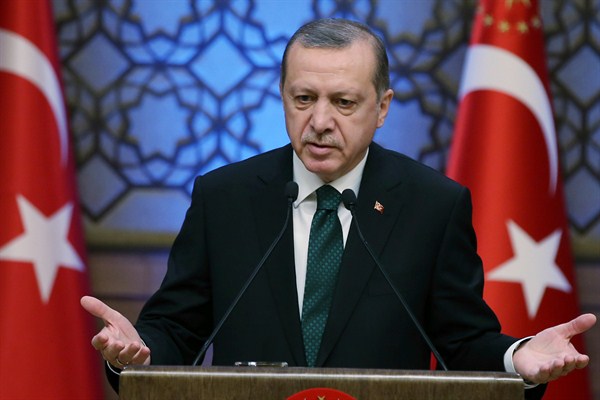The fall of rebel-held eastern Aleppo in Syria last month was a stunning personal blow for Turkish President Recep Tayyip Erdogan, whose government had openly backed Syrian rebel groups after the civil war began in 2011. Losing the rebels’ self-styled “capital of the revolution” to Syrian President Bashar al-Assad and his allies is an insurmountable setback for years of Turkish regime-change efforts in Syria.
But there is a silver lining for Turkey. After Aleppo, Ankara can focus all its diplomatic, military and political efforts on pursuing its more immediate national security interests in northern Syria: fighting the so-called Islamic State while checking the Syrian Kurdish project for autonomy and national independence. And with President Barack Obama serving his last few days in Washington, Erdogan sees a small window of opportunity to maximize his leverage and negotiating position on both these fronts before President-elect Donald Trump moves into the White House.
There is no doubt that Ankara and Washington do not see eye to eye on Syria. U.S. support for Syrian Kurdish fighters against the Islamic State has drawn the ire of Erdogan and the Turkish national security establishment since 2015. The U.S.-backed Syrian Democratic Forces (SDF) are dominated by the Kurdish People’s Protection Units (YPG)—the fighting arm of the Democratic Union Party (PYD)—which the Turks argue are Syrian extensions of the outlawed Kurdish Workers’ Party (PKK). Washington, on the other hand, considers the Kurds to be loyal and powerful allies on the ground against the Islamic State. The SDF is Washington’s most capable fighting force in Syria as it prepares for an assault on the Islamic State-held city of Raqqa.

